Black Christians discuss how faith informs their stances on abortion
Are reproductive rights a part of "God's justice"?
For Cherilyn Holloway, her support of Black Lives Matter has everything to do with her stance on abortion.
When Michael Brown was fatally shot by a police officer in Ferguson, Missouri, in 2014, Holloway made a point to discuss the tragedy with her own sons The tragedy also ignited the spark that converged her passions and activism.
“Here's a man who was shot in the street, he couldn't defend himself, the same way a baby can't defend themselves in the womb,” she said. “Because they both are lives, and both are lives that matter. And the issue we are dealing with right now in our society is a life issue. We have built a society that does not value life, whether it is in the physical form or in the womb.”
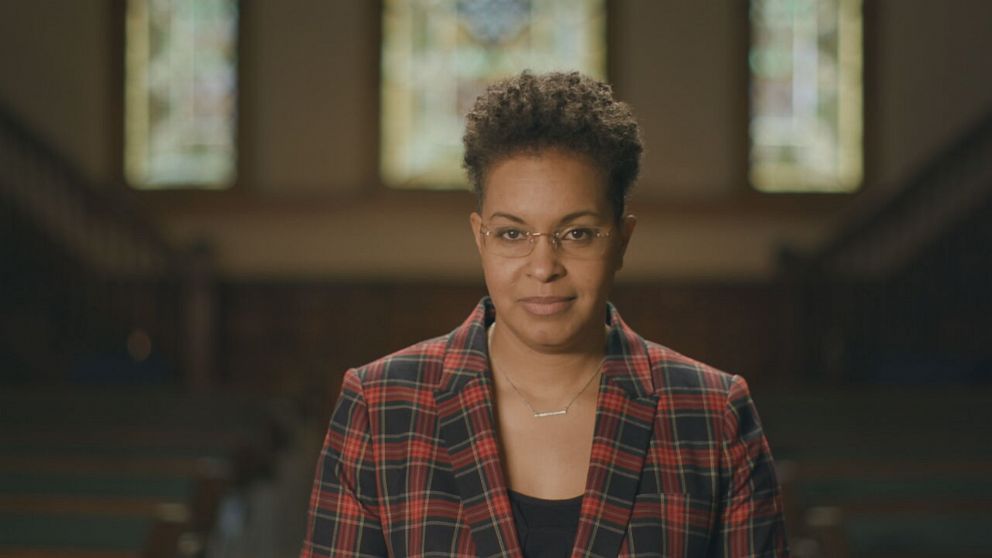
“Those lives deserve to have someone speaking up for them,” Holloway added. “From the womb to the tomb, all of it matters.”
Holloway had two abortions herself before she decided how she felt about the issue.
“It was about three days later that I said, ‘This is enough,’” she remembered. “I sat on my floor, and I wept. … I was tired of being a subpar Christian, I was tired of saying I was a Christian and not acting like it.”
Watch “Soul of a Nation” TUESDAY at 10 p.m. ET on ABC. Episodes will be available on Hulu starting Wednesday.
Today, she says she is “100% pro-life.”
“Life is the most beautiful thing to me … from the time of natural birth to the time of natural death,” Holloway said. For her, being pro-life means also fighting against the systemic inequalities affecting her community. “If we want that woman to see that life for being a life, then we have to create an environment in which she can do so and [the baby] can thrive. Because right now, she's in an environment where she feels oppressed, and that's why she's fighting for her life.”
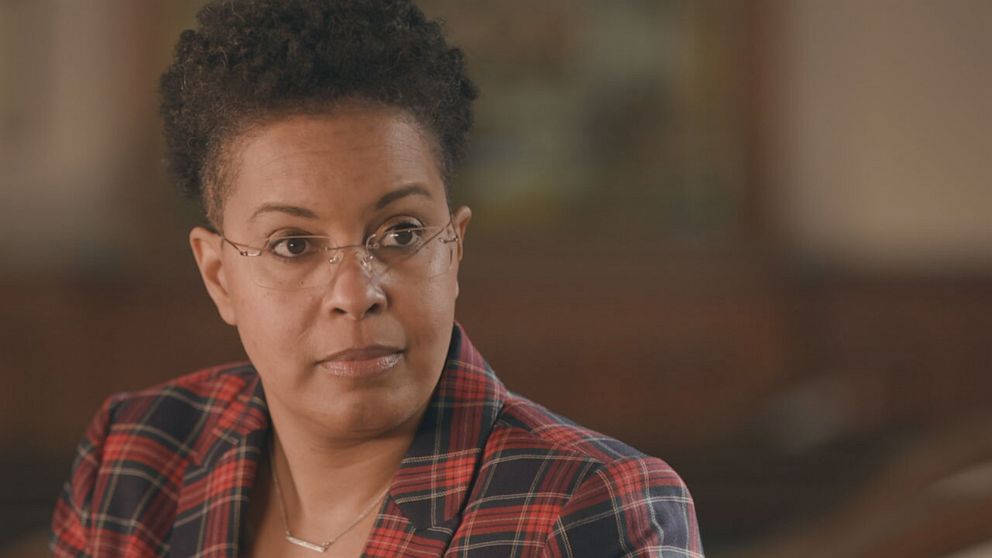
Holloway is not the face we often see in the abortion rights and anti-abortion movement. Her focus on structural inequality can make some within the movement uncomfortable.
“Everyone should have the right to make this choice that they want to make, and not the choice that they feel like they have to make. Because we've created a society that says it's cheaper for her to have an abortion than it is for me to pay for maternity leave," she said. "It's economically cheaper for our government to pay for abortions than it is to build the structure and the economic support needed to support these families.”
Still, challenges to Roe v. Wade have been mounting in a number of states across the country. In the entire state of Missouri, there is only one abortion clinic. Kawanna Shannon is the director of surgical services there.
“My mother and father raised me in the church -- praise dancing, choir, praise team, whatever, you name [it],” Shannon said. “I have pretty much stayed firm in the faith that I grew up in. I am a believer of Jesus Christ.”
Although Shannon initially wavered trying to reconcile her faith and her commitment to reproductive rights, she’s now at peace with her religious beliefs and her support and work in abortion.
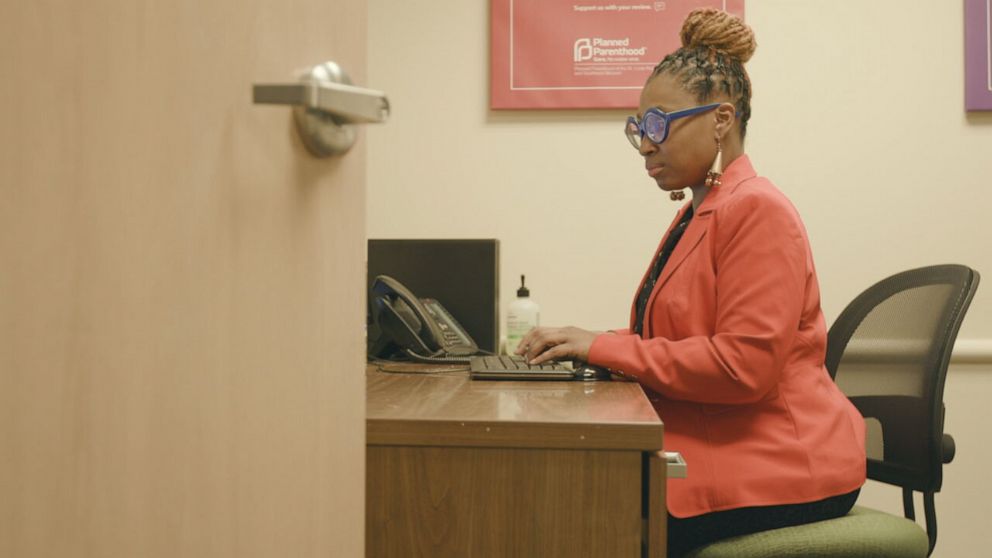
“I've always been a person that believed that a woman had a right to choose,” she explained. “The conflict really came in, ‘Am I gonna be able to function as I feel I need to function in church, or in faith, and be able to stand and fight for the rights of women? And am I going to be allowed to do that? Or am I going to be looked at as, ‘You can’t be both.’ And I just decided one day that I could be both. And no one but I had the right to tell me that I couldn't be.”
Shannon said she will continue “to fight for women’s rights and stand up for women. And also love God and be a Christian. I can do both.”
She said people are surprised to learn she has five kids and supports abortion rights.
“That was my choice. I had the right to choose to carry to term and parent. My choice,” Shannon said. “We all have choices. And who are you to say their choice is wrong? You can't pick and choose who you wanna love.”
She believes we all have our “individual walk with God.”
“I believe that God empowers me, and allows me to be able to stand firm and walk through with my head held high -- to be able to help a woman through these decisions. You need somebody always in the midst of the mud,” she said.
Shannon said she wants people to understand that part of her faith is “giving women every opportunity to choose what they want to choose.”
“It's important for people to know that when I'm fighting for women's rights, that I believe that I need God to help me through that,” she said. “Through the hate comments and the threats -- that's where God is walking with me.”
Both Holloway and Shannon are women of faith and the church plays a key role in their lives. Yet, the abortion question is one still being grappled with even inside the Black church.
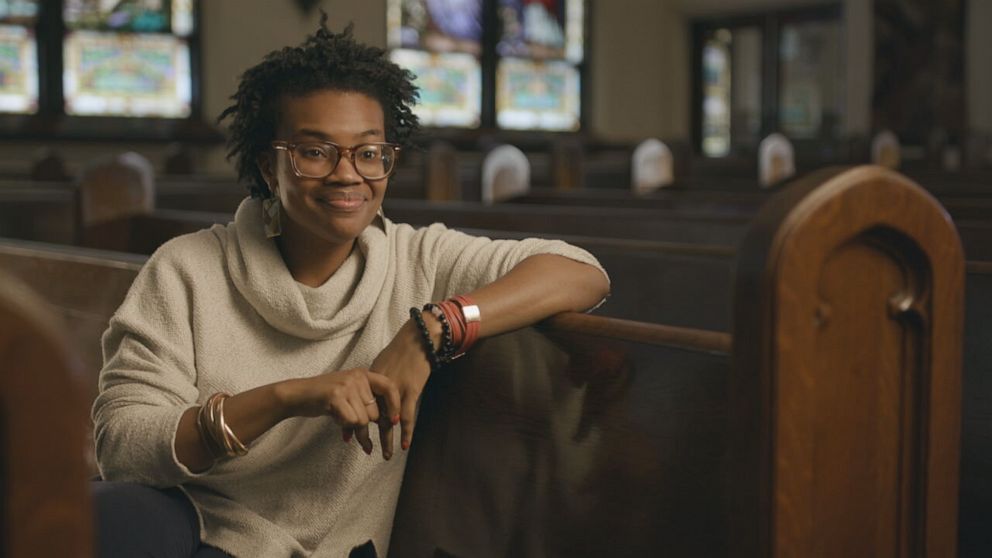
Pastor Michelle Higgins leads the congregation of St. John’s Church in St. Louis. While she said her journey with God is certainly far from over, she has “no complexities and no doubt that reproductive rights are part of God's justice.”
“I think of my mothers on the Middle Passage. Did my ancestors, who jumped off the side of the ship and threw their babies overboard, where are they at? Did they go to hell?” she said. “I will never believe that abortion is murder. I cannot.”
Pastor Clinton Stancil of AME Wayman Church is theologically against abortion, but says it’s important to consider the context in the Black community.
“I am pro-life, don’t get me wrong. I believe in the sanctity of life. But we have gotten so caught up in our dogma, in our religion, in our rituals, that we've forgotten to meet the needs of the community we serve,” he said. “When we talk about abortion, it cannot be discussed in a vacuum. You cannot talk about being pro-life and not address the disparities that happen in our community.”
Stancil believes morality cannot be legislated.
“I am totally opposed to white legislators legislating what Black women do with their bodies. … You don't have the moral high ground to tell Black women what to do with their body,” he said. “If you're gonna tell me that you care about life, then do something about our lack of education. Do something about the disparities in health care in the Black community. If we deal with the systematic problems then maybe abortion would not become necessary.”
Even though Higgins and Holloway stand on different ends of the pew when it comes to abortion, Higgins believes that women like Holloway are truly committed to fighting for the Black community:
“These sisters, and they are my skin folk," he said. "I believe that these sisters are wise. I believe that their wisdom is seated deeply, deeply in a value for life. And they are proudly pro, I would say, Black liberation.”
And yet, Higgins does end with a question:
“My question would always, always be, does your pro-life belief impede access to people's quality of life? Must I agree with you in total in order to be allowed to survive, in order to be allowed to thrive?"
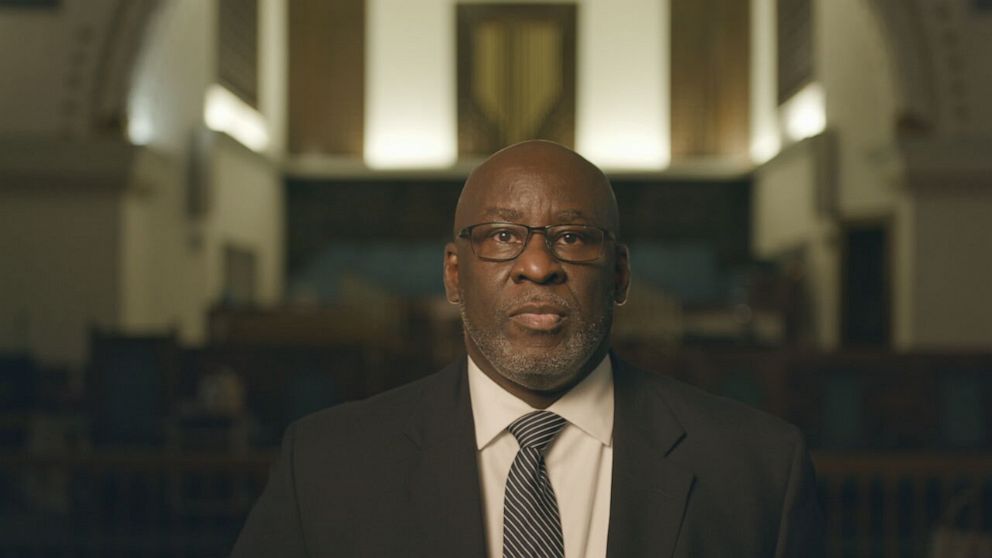
For generations, the Black church has served an important role in providing space for Black people to discuss policy and advocate for their communities, as the Civil Rights movement of the 1960s did with its foundations in the Black church.
“We need spaces that have greater degrees of autonomy from the white gaze and white governance,” said Pastor Heber Brown III, of Pleasant Hope Baptist Church in Baltimore.
Through terrorism, arson and racial violence, the Black church has stood firm and has provided a place for the community to gather without having to take into account what white people in power might have to say about it.
“The reality is that in our African American experience, our God is the god of the oppressed. We know God through a liberation struggle,” said Bishop Walter Scott Thomas Sr., of New Psalmist Baptist Church in Baltimore. “We sing, we shout, we dance, we praise God, we wave hands, we speak in tongues, we sing choir hymns, we have gospel, but our god is the god of liberation.”
As Pastor Brown sees it, Black Lives Matter and the Black church are natural allies. But he says history paints a different portrait of the partnership with the white church.
"White pastors made agreements with white slave owners," he said. "'We promise we'll tell them that their baptism means nothing here on earth.' And then that agreement, that pact, the white churches and the system of chattel slavery came into deep agreement that has long persisted."
Holloway separately said that some anti-abortion beliefs are grounded in the hypocrisy of caring for unborn Black babies but not caring about struggles Black people face.
“If we are going to talk about the life issue in terms of race, then let's talk about it completely and wholly,” she said. “Stop using my community as a talking point if you really aren't going to be there for my community.”
Stancil is concerned about the reluctance within the church to have difficult conversations like these.
“We got too many people who are afraid to have the hard and the serious conversations. Because we're not having those conversations,” he said.




